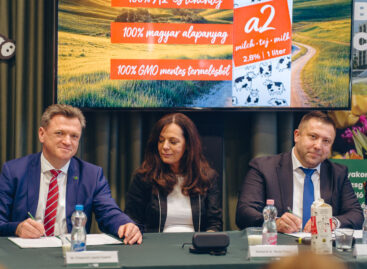Seventeen moments of spring
On the second day of the Business Days conference Tünde Turcsán, commercial director of GfK Hungária’s FMCG division gave an insight into the latest consumption trends and their practical manifestations during the pandemic.

Tünde Turcsán
commercial director
GfK Hungária
She revealed that according to GfK’s Consumer Life survey made at the end of 2019, 45 percent of Hungarian consumers were worried about the cost of living in general, and 39 percent felt the same about their health-related expenses. In early 2020 the company’s global survey found that people were already scared of pandemics – this was the second biggest fear.
Conscious shopping and a feeling of eco guilt
While at a global level the top consumption trend is searching for safety and in Europe it is environmental consciousness, in Hungary the main trend is conscious shopping. In Hungary 48 percent of shoppers are looking for products that reflect their own set of value and the same proportion of them choose fewer but high quality products. Protecting the environment is increasingly important for Hungarian shoppers too, and some of them have a feeling of eco guilt if they feel their consumption behaviour isn’t green enough.
On the 14th week of the year a GfK survey found that 35 percent of consumers very worried about the coronavirus and 59 percent said the same about the economy. As a reaction to this, 16 percent started visiting different stores than before, 28 percent ordered products online more often and 18 percent ordered FMCG products online more frequently than before.
Discounters were the winners
In the first half of 2020 sales by discount supermarkets were up 22 percent, mainly to the detriment of hypermarkets. Discounters had a 94-percent penetration rate and the like-for-like basket value was up 24.6 percent in discount stores in the examined period. It is noteworthy that the channel’s success isn’t exclusively rooted in low prices. Discounters offer a good price-value ratio, have special products in their selection, they do actively for sustainability, organise promotion campaigns and communicate their added value very well. They also utilise omnichannel solutions and more touchpoints solutions to increases sales.
Constant adaptation
About 50 percent of Hungary’s population are struggling with some kind of financial problem. As for the store choice preferences of Hungarian consumers, the most important for people is to get everything they need in a single store, preferably in one that is located close to where they live and isn’t crowded. 48 percent of respondents said they would support the country’s economy by purchasing Hungarian-made products. When buying food, the most important criteria are freshness and taste. Ms Turcsán concluded her presentation by saying: the crisis changes many things, the quality of life drops and the number of opportunities reduces, but it seems that consumer demand for quality products prevail. This also means that price promotions will be important in the future. //
Related news
Behavioral research has shown that those who are thrifty live greener lives
🎧 Hallgasd a cikket: Lejátszás Szünet Folytatás Leállítás Nyelv: Auto…
Read more >GfK’s November German consumer sentiment index worsened
🎧 Hallgasd a cikket: Lejátszás Szünet Folytatás Leállítás Nyelv: Auto…
Read more >Related news
Tourism Business Index: improving sentiment, but the sector remains in the red
🎧 Hallgasd a cikket: Lejátszás Szünet Folytatás Leállítás Nyelv: Auto…
Read more >Levente Balogh announces a revolution in the quality dairy products market
🎧 Hallgasd a cikket: Lejátszás Szünet Folytatás Leállítás Nyelv: Auto…
Read more >Lamb Days – Gastronomic Adventure is coming again on March 28–29!
🎧 Hallgasd a cikket: Lejátszás Szünet Folytatás Leállítás Nyelv: Auto…
Read more >









